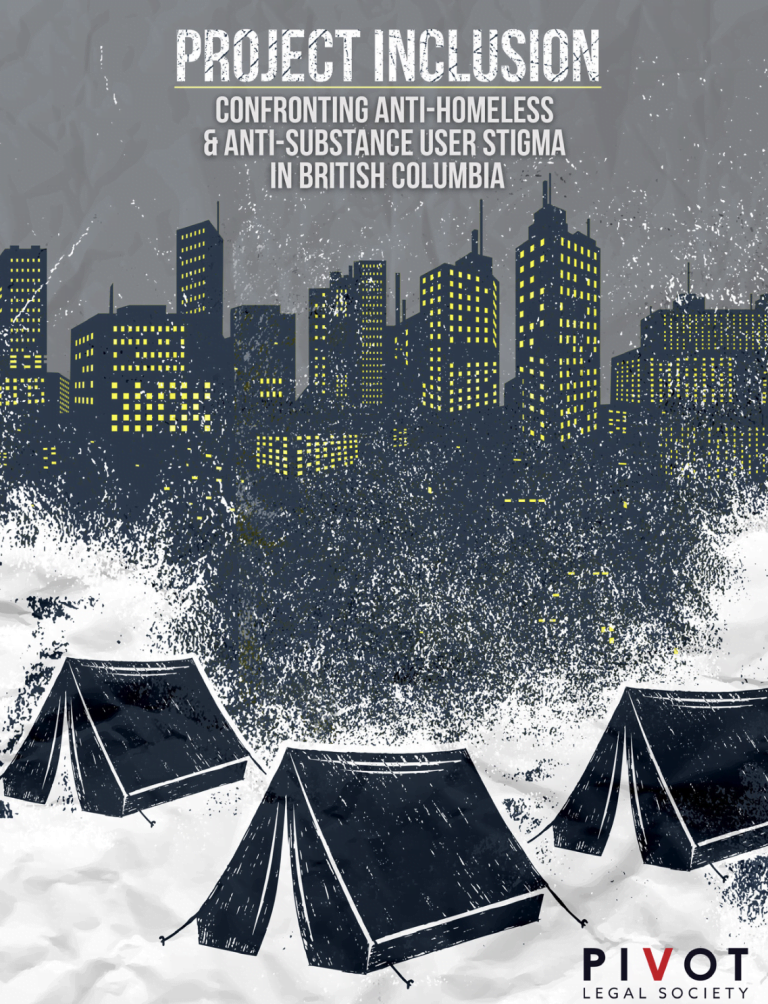Search the Baseline Project
To search the recommendations database, please visit the database main page.
To search the recommendations database, please visit the database main page.

In December 2018, Pivot Legal Society published their comprehensive study, “Project Inclusion: Confronting Anti-Homeless and Anti-Substance User Stigma in British Columbia.” The report examines the ways in which specific laws and policies in policing, health care and the court system directly undermine the health and safety of people who are homeless and living with substance use issues by trapping them in a cycle of criminalization.